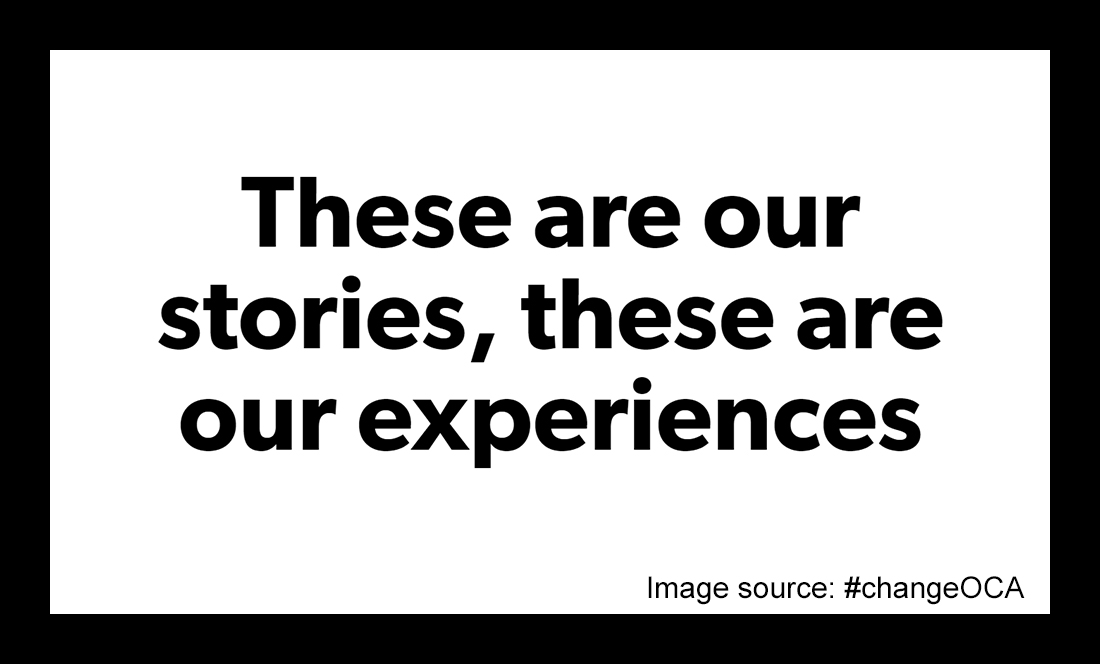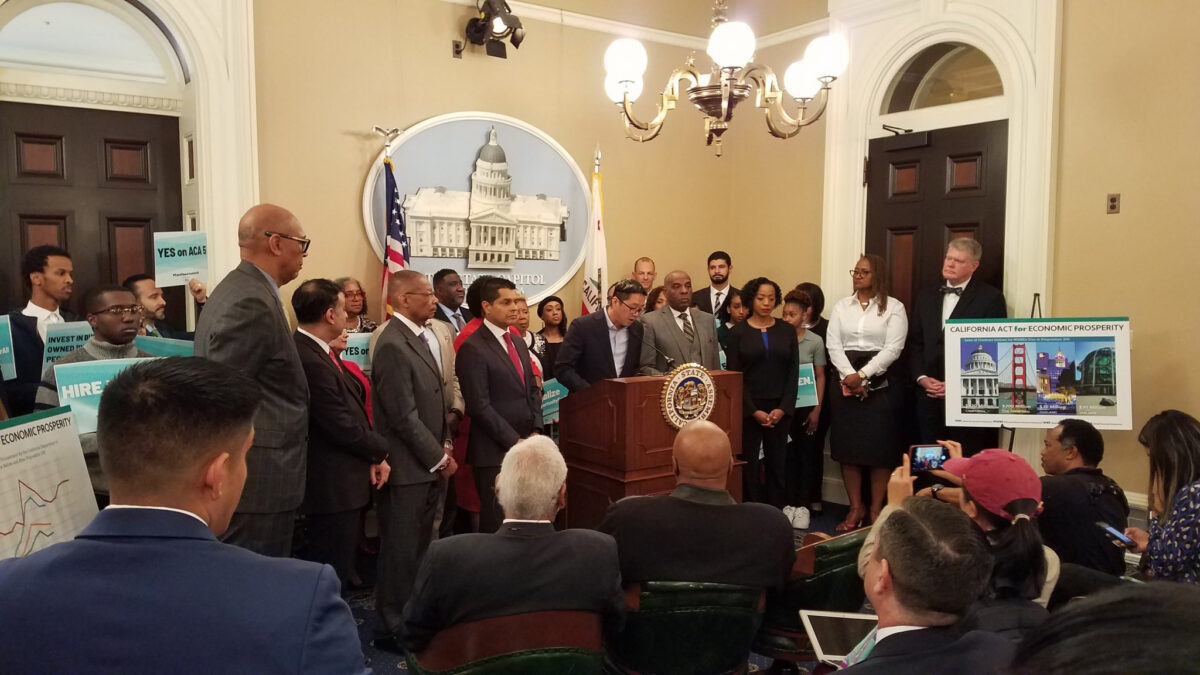By Guest Contributor: Jenny Lee
My family and I do not agree on much — whether that is what food tastes good, how good of a daughter I am, or if I intend for my words to carry so much bitterness as they escape through my lips.
I have always sought a justification for this dissonance — a quick and easy answer as to why our family feels so divided. I blamed our immigration, the cultural and experiential gap that it has created between mother and daughter. I blamed Korean society, whose standards and expectations entrap me when I stray away from its conventions. I blamed White American society, which has upheld these systems of power and has thrust such an inferiority complex onto this family — both as a collective and as individuals — that it has pushed us from assimilation to preservation, from love to hate.
There is both love and hate in this family.
When the COVID-19 outbreak began, the schools in our region shut down and put all of us students in quarantine. Ah, to be indefinitely stuck in a home of disharmony and Koreanness! I braced myself for the high emotions that would soon storm through the house.
I was eating dinner under a dimmed kitchen light (as per usual) last week as my mother and I carefully engaged in small talk, both of us warily tiptoeing around our words in delicate streams so as not to provoke the other. She brought up the virus and how she had read online about Costco’s frozen food section becoming completely empty. She commented how it’s funny that it’s the freezer food that’s gone out of stock, because it shows how these American people are lazy and unhealthy, and they don’t know how to cook real food. I felt a sense of ridicule radiating from her words, and I immediately retaliated, my words spitting in a lighthearted resentment (much the way bitter honey would taste), “Yeah, makes sense. Frozen food lasts longer.” A familiar darkness cast over my mother’s face, and I knew dinner was over.
Later I wondered: Why did I rush to defend an institution that has made a mess of me in the first place? This is the cruel and disgusting truth about the American racial hierarchy. As Lisa Park pens in her piece, “A Letter to My Sister and 25 Year Anniversary,” this hierarchy “keeps us consuming its ideals so that we attack ourselves instead of the racial neuroses it manufactures.”
Home is where I find my few tangible ties to my Korean identity, yet I instinctively attack Koreanness for reasons I am only now starting to understand. I push against any positivity or pride attached to our family’s Korean identity. I push away the family who has sacrificed their sense of belonging and financial and social stability to bring their only daughter to a land where trees supposedly stay green forever. I point out how their English pronunciation is “broken” and how toxic the Korean education system is. I make it clear that I hate cheonggukjang and how it has been nicknamed “dead body soup”; that it has made the top ten list of the world’s healthiest foods only adds to my resentment.
Then I turn from this Korean family to engage in civil discussion with my American peers in my American school, speaking rapidly in a reserved but passionate tone about how the term “broken,” when used to describe someone’s fluency in English, is a manifestation of Americentrism that fuels xenophobia and can be tied back to the use of language as an imperialistic force used to puppeteer marginalized communities. At home, I attack Koreanness while placing Americanness on a pedestal. Outside, I caress Koreanness and attack Americanness. What is this hypocrisy?
At home, I attack Koreanness while placing Americanness on a pedestal. Outside, I caress Koreanness and attack Americanness. What is this hypocrisy?
Is it possible to detach Koreanness from the griefs of my family? I’ve realized that since my core tie to my Korean identity is through my family, I’ve come to equate Koreanness with our family’s pain. My tenuous connection to the Korean language comes only through conversation with my Korean family, too often full of obscenities flying in high pitches from our mouths. For me, ‘Asianness’ evokes family and family evokes ‘Asianness’, so I’ve come to attach the pains and griefs of our family dynamics to this idea of ‘Asianness.’ I’ve racialized the notions of a “good family” and a “bad family.” Therefore, when I attack Koreanness in our house, I am indirectly resisting the trauma embedded in our family and the pain within. Attacking Koreanness in my house provides me the voice that I typically do not hold. And when I protect White American society, when I place Americanness on a pedestal, I am shouting at my family: Why can’t we be happy? Why can’t we be happy like White America?
And while I have tended to racialize “good” as White and “bad” as Asian, my parents may have come to racialize “good” as Asian and “bad” as White. White America and White Americanness are the forces that stole their daughter from the familiarity of Korean teenagers, parenting, and culture; and they cannot report this theft as even the institutional supports meant to uphold safety cannot be trusted. I defend White America because when my mother attacks White American society, she labels my assimilation pitiful, even as I’ve longed for assimilation since the day of our immigration here.
Yet I’ve also begun to realize that in a society that is designed for and that is founded upon the continuous marginalization of people like me, my family may be a respite — a place of love I can find solace in. In the society outside of my Korean house, I am beginning to see the hypocrisy and corruption of White America, and so I find myself increasingly seeking the familiar Koreanness of home. My family has lost so much in our immigration. Perhaps, I still cling to assimilationism – because I want to convince myself and my family that all this pain, all this trauma was truly worth everything we let go for a fleeting promise of a “better future.”
The disconcerting truth about this COVID-19 outbreak is that it has also given something for our family to agree upon for the first time in a while, even though these conversations continue to hold much tension and complexity. Yesterday, my father came home from a quick trip to the grocery store (he left the house wearing a disposable mask and gloves) and commented that “all the Asian people outside are wearing masks, but none of the American people are,” saying that this simply comes to show how Asians are more careful in choosing to wear masks out in public. I stayed silent this time; I didn’t defend the (implicitly White) “American people.” Because maybe this is how we are resisting within the margins — through pride, through distinguishing our community from the very forces that are corrupt and flawed, carving wounds through our bodies and relationships and so much that we hold dear. And maybe it is by drawing this distinction, by finding a way to exalt our community as it is pushed to the margins by the dominant narrative, that we combat our losses and empower ourselves.
Then the conversation steered (though I don’t remember which one of us had initiated this shift) towards the discrimination of Asian American folx as a consequence of the COVID-19 outbreak. Our family does not converse much beyond what’s for dinner or what colleges I’m applying to or how much traffic there is on the road, but I especially make an effort not to bring up social issues and current events in conversation with my parents. History has shown me that it will pivot into emotion-fueled, angry, grieving, uncomfortable conversations about cultural dissonance and my loss of Korean culture. However, as we talked about the anti-Asian xenophobia looming above our heads, I found agreement and solidarity within my family for the first time in as long as I can remember.
My mother mentioned how she read in a Korean online newspaper that a Korean international high school student had died from COVID-19 because urgent care turned him away for his lack of insurance. He was willing to pay, but they did not treat him because the American healthcare system shuns “the other,” including this international student. I did not defend White America in this conversation. I said, this is screwed up, the American healthcare system is screwed up. I turned to Google to read more about this case, and it took multiple scrolls to finally land on an article written in English that mentioned the first death of a teenager to COVID-19, how he was seventeen years old (just like me), how he was turned away by urgent care because he was uninsured. Yet the article did not mention that he was an Asian American international student; it ignored race and the ways in which the American healthcare system excludes marginalized communities. Only when I turned to a Korean search engine could I find an article confirming that this student was indeed Korean. I felt a pitting ache blooming in my gut as it radiated into a disgust pounding at my heart. Raw disappointment and shock hung in the air as my mother then uttered the following words: I really resent America sometimes.
This sentence was not directed at me, but against White American society, one that showed her hope and faith — and still, her disappointment — in America. And I agreed with her. White America’s pitfalls brought our family together for once. My heart aches for the student, his family, and his loved ones. And I feel protective of Koreanness, with its fragility and dysfunctionality and love and pride and pain.
What constitutes the Asian American identity? Shared pain and resentment and trauma and disappointment? Some form of shared language? A shared system of values and beliefs? How do we move away from centering Whiteness when determining what unites the Asian American community?
What constitutes the Asian American identity? Shared pain and resentment and trauma and disappointment? Some form of shared language? A shared system of values and beliefs? How do we move away from centering Whiteness when determining what unites the Asian American community?
Intergenerational trauma is not unidirectional. Just as my parents pass down their intergenerational trauma that has been passed down from their own family, I pass forward my own trauma that I have experienced and internalized into this relationship with my parents. This is the multidirectional essence of intergenerational trauma: its trajectory ranges from up to down, down to up, and it also manifests in a cyclic pattern where the intergenerational trauma passed down to child relays back up to parent, with new external trauma adding onto this cycle. Alternatively, the trauma of the child can be passed up to the parent in resistance to the trauma passed down from parent to child and vice versa. Yet this phenomenon reflects the internalization of societal oppression that leads to individuals attacking ourselves and our relationships.
Instead, I seek to channel this intergenerational trauma towards its external cause: systems of power like White supremacy. In this process, I must grapple with the intergenerational trauma that lives and resides in myself: my childhood self as well as my current self, the ways in which my past experiences are relayed onto my experiences today, and how my experiences today shape the lens through which I look at my past experiences.
I am doing this work as I grapple with these questions, as I attempt to desegregate love and hate, as I seek to deracialize the notions of good and bad, and to detach these notions from my family. It is a messy, messy process that is cyclical, and emotional, and exhausting, and painful in different ways every day. I find myself in quarantine, reflective and increasingly aware: I am holding these pieces together, rather than in isolation, and I am isolating certain notions, rather than holding them together. Quarantined in the midst of a global pandemic, I am isolating and reuniting in connection, in movement, and in healing.
Jenny is a 1.5 generation Korean American high school junior, who is continuously learning, thinking, growing, challenging, and healing. As she navigates her personal journey in understanding her social identity through the lens of critical race theory, she seeks to carry her newfound interest in activism work into pursuing Ethnic Studies in higher education.
Learn more about Reappropriate’s guest writing program and submit your work here.



